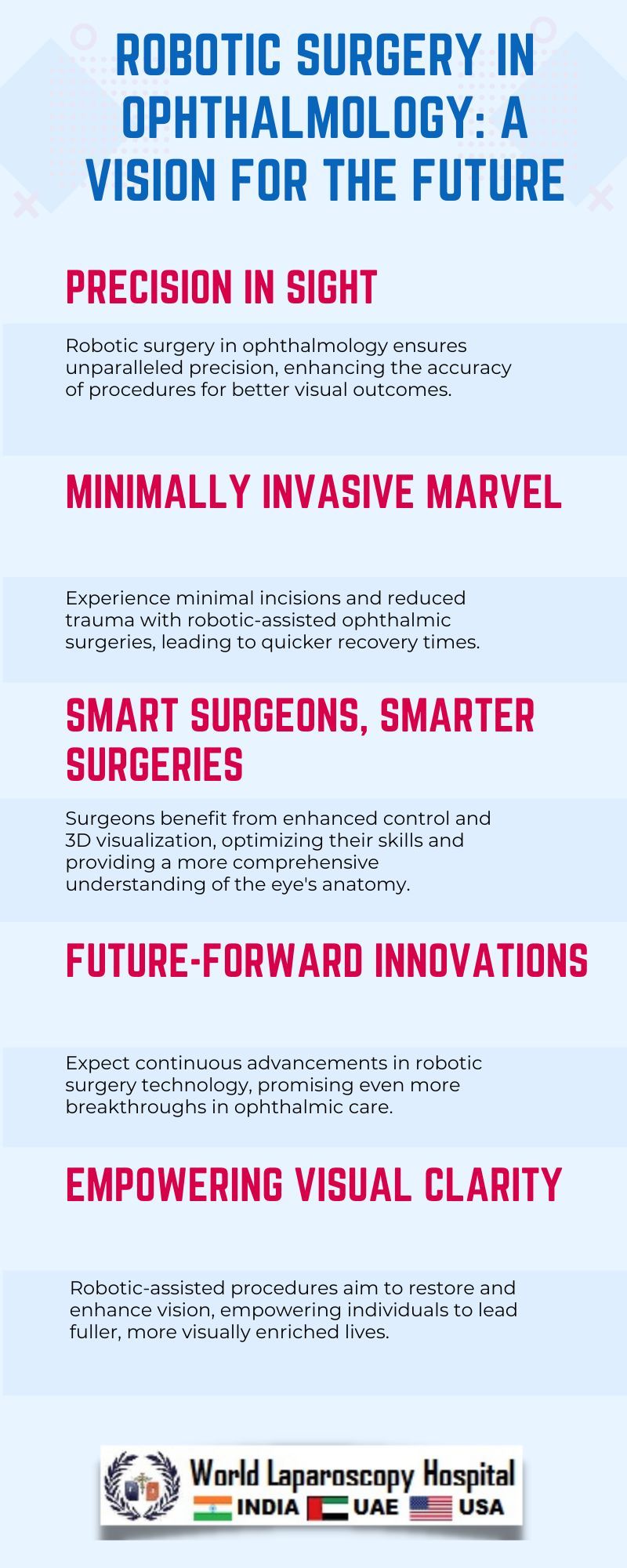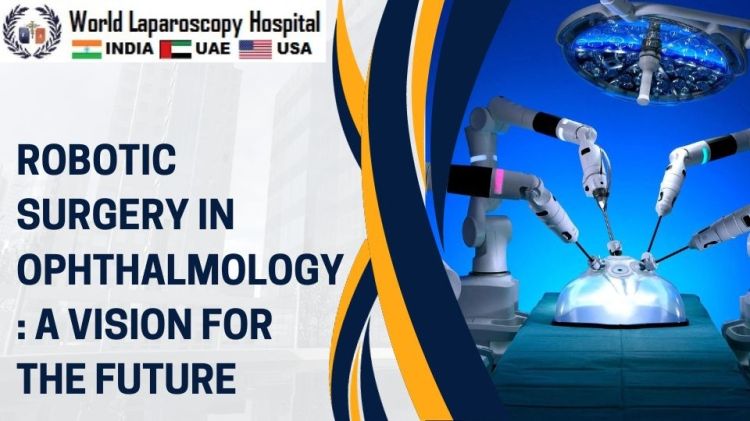Robotic Surgery in Ophthalmology: A Vision for the Future
Introduction:
The field of ophthalmology stands at the precipice of a transformative era, where cutting-edge technology merges with surgical expertise to redefine the boundaries of eye care. Among the groundbreaking advancements, robotic surgery has emerged as a beacon of hope, promising unparalleled precision and improved outcomes in delicate ocular procedures. As the integration of robotics continues to evolve, the landscape of ophthalmic surgery is undergoing a profound shift, heralding a new vision for the future.

The Evolution of Ophthalmic Surgery: A Historical Perspective
Tracing back through the annals of medical history, the evolution of ophthalmic surgery reflects a journey marked by innovation and refinement. From ancient practices to the advent of microsurgery, the discipline has undergone significant progress. Early techniques, while revolutionary in their time, often relied heavily on manual dexterity and precision. The transition to microsurgical techniques laid the groundwork for the integration of robotics, fostering a paradigm shift in the approach to ocular surgeries.
Understanding Robotic Surgery in Ophthalmology: A Technological Marvel
Robotic surgery in ophthalmology embodies a convergence of engineering marvels and medical expertise. Utilizing robotic platforms equipped with miniature, highly maneuverable instruments and high-definition imaging systems, surgeons gain unparalleled control and magnified visualization of intricate eye structures. These advancements enable precise interventions in procedures such as cataract surgery, retinal repair, corneal transplants, and more, elevating the standards of surgical accuracy and safety.
The Robotic Surgeon's Arsenal: Tools and Technologies
At the heart of robotic surgery lies a repertoire of cutting-edge tools and technologies. Robotic systems such as the da Vinci Surgical System, adapted specifically for ophthalmic use, boast advanced features like tremor filtration and motion scaling. These attributes empower surgeons to execute intricate maneuvers with enhanced stability and micron-level accuracy, mitigating the risk of human error and optimizing surgical outcomes.
Challenges and Opportunities in the Integration of Robotics
Despite the promise it holds, the integration of robotics in ophthalmology faces a spectrum of challenges. The cost of robotic systems, the need for specialized training, and ensuring seamless compatibility with existing surgical workflows are among the hurdles. However, these challenges are accompanied by opportunities for innovation and refinement. Ongoing research and development aim to streamline robotic platforms, enhance user-friendliness, and expand the scope of applications.
Clinical Applications and Success Stories
Within the realm of ophthalmology, robotic surgery has already demonstrated remarkable success in various procedures. Case studies showcasing the precision and efficacy of robotic-assisted interventions, ranging from complex vitreoretinal surgeries to the meticulous manipulation of delicate ocular tissues, underscore the potential of this technology to revolutionize the field.
Ethical Considerations and Future Implications
As with any transformative technology, the integration of robotics in ophthalmology prompts ethical considerations. Discussions surrounding patient consent, data privacy, and equitable access to advanced surgical care merit attention. Moreover, the future implications of robotic surgery extend beyond the operating room, shaping healthcare policies, training paradigms, and the overall landscape of ophthalmic practice.
Conclusion:
The emergence of robotic surgery in ophthalmology represents a pivotal moment in the pursuit of precision-driven and patient-centric eye care. While the technology continues to evolve, its potential to redefine surgical standards and expand treatment possibilities is undeniable. As research persists and barriers are overcome, the fusion of robotics and ophthalmic expertise holds the promise of a future where vision restoration and ocular health reach unprecedented heights.
